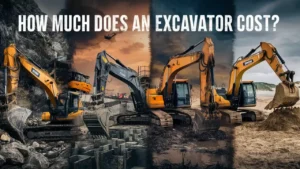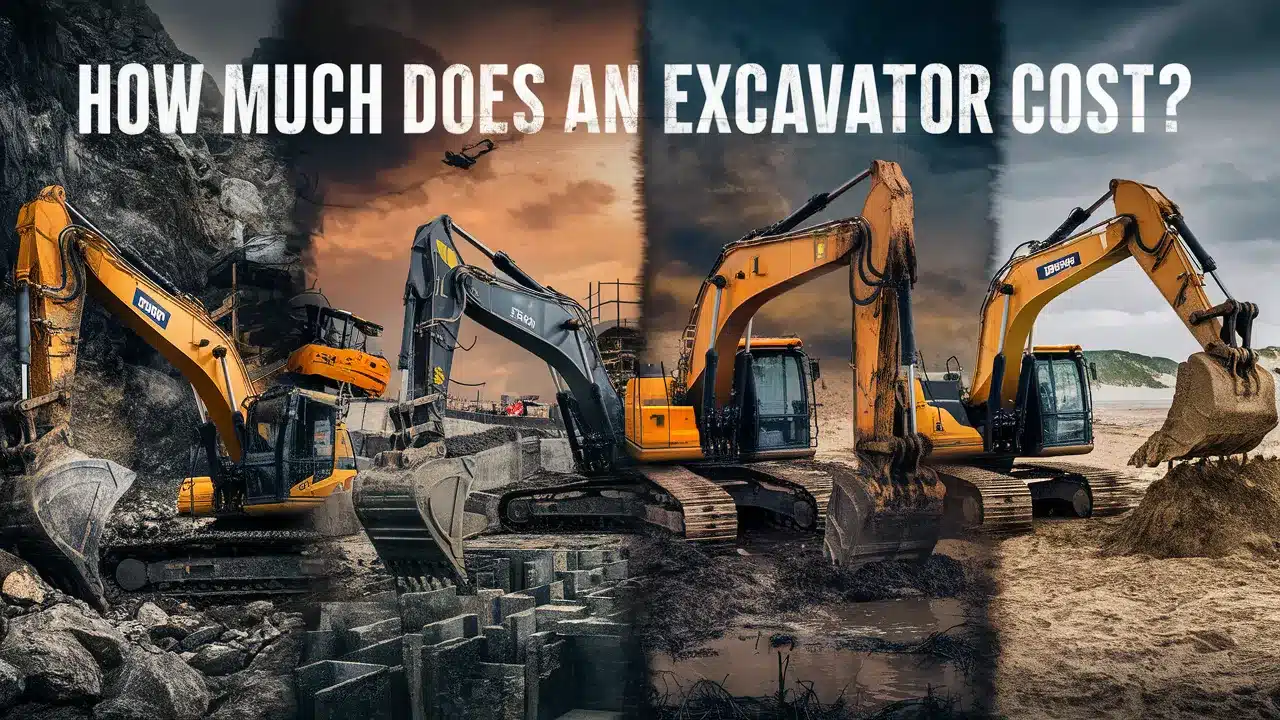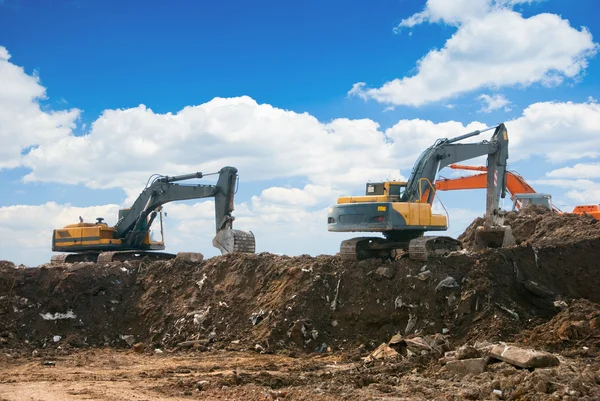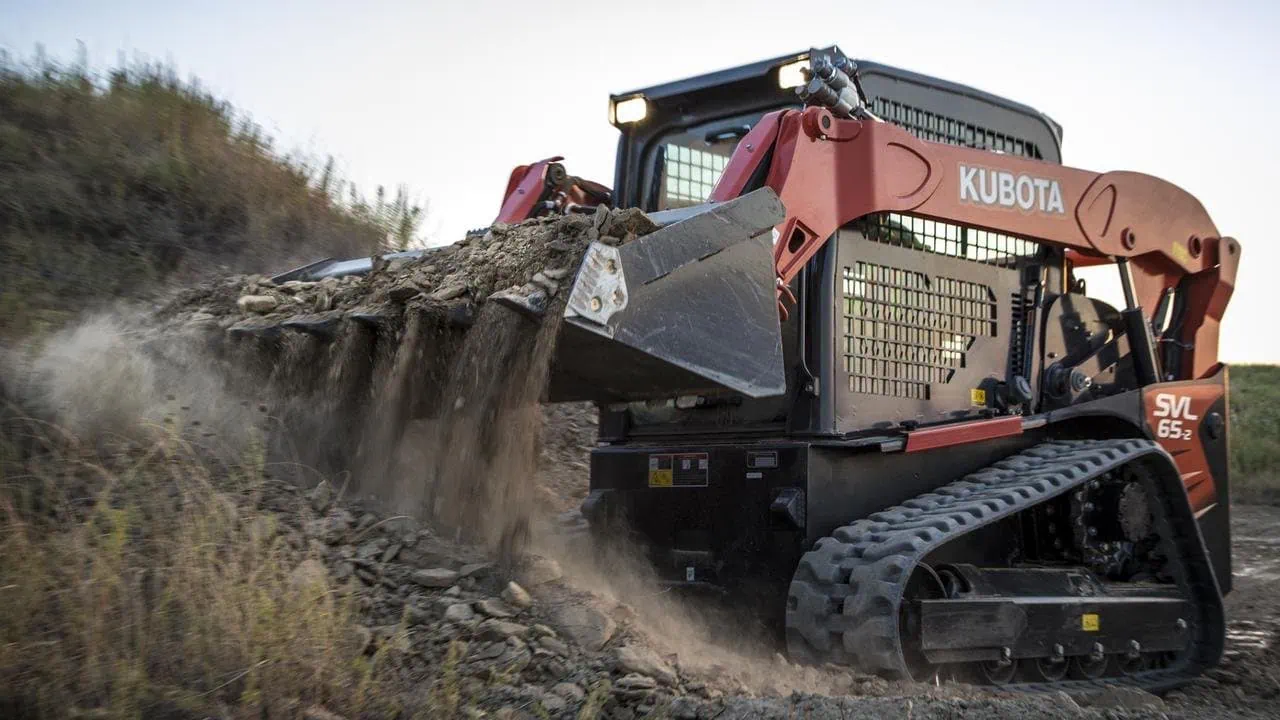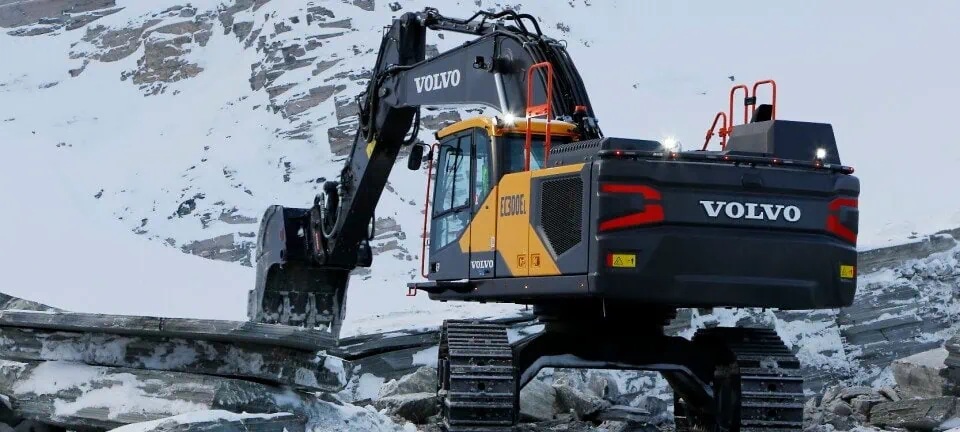Considering whether it’s worth it to a Second-Hand Excavator Worth Buying? A lot of people like the idea of the lower up-front cost. They worry about the quality and having to get it fixed again soon, though. With the right seller and a good once-over, buying a used excavator can be a great way to get your digging done without breaking the bank.
When considering the purchase of a second-hand excavator, the decision depends on factors such as your budget, the machine’s condition, and potential future maintenance costs. By selecting a reliable supplier, ensuring quality checks, and focusing on key aspects like brand and machine hours, buying a used excavator can indeed be a smart financial choice.
Let’s take a closer look at how you can decide for yourself if buying a used excavator is the right move for you.

Table of Contents
ToggleWhy Buy a Second-Hand Excavator?
Cost Savings
The financial benefit is obvious. You will save a lot of money compared to buying a brand-new machine. Depending on the brand and how old it is, you can save 40% to 60% by buying used. If you’re a business owner working on tight margins or facing a small capital budget, buying used helps you get high-quality equipment you need without breaking the bank. The smaller upfront cost also means you have money left over to do other things you need to do to run the business.
Return on Investment
The ROI on a used excavator is potentially very high. While a new excavator might be more efficient and get better fuel economy, you can get a lot of work out of a used excavator for a lot less dough. If you take care of it and do your maintenance, it’s going to earn you a pile of money for a relatively small investment. If you want to get rid of it a couple years down the road, you’re going to get some of your money back out of it when it’s time to sell it.
Depreciation
When you buy just about anything used—especially big machines like an excavator—you avoid taking the biggest hit of depreciation. A new excavator might drop 20% of its value in the first year. If you buy used, you miss that big drop and get a lot more life out of your purchase before it becomes worth a lot less. This is very helpful for a business looking to get as much work out of a machine as possible.

What to Look for When Buying a Second-Hand Excavator?
Brand Reputation and Model
That being said, not all brands and models are the same. Brands like Caterpillar and Komatsu have a reputation for being tough, long-lasting machines. If you’re thinking about a particular model of excavator, do your research and find out how long you can expect it to run without giving you more trouble than it’s worth.
Machine Hours and Usage History
The number of hours on the engine and hydraulic system affects how long a used excavator can last before it’s pretty much used up. Most excavators are rated for 10,000 to 15,000 hours of work. If they’re well taken care of, the better brands often work a lot longer than that. A machine with fewer hours is in better shape than one with a ton of hours.
But a machine with lots of hours that’s been taken care of can still give you a lot of work. Also, what they were doing with the machine can make a big difference. If the machine was just digging dirt in somebody’s yard versus digging rock on a big project, that’s going to impact how much work the machine’s done hard(er) versus easy.

Appearance and Signs of Damage
While the outside of a machine doesn’t always tell you what’s going on inside, you need to give it a good once over. Look closely for any signs that people haven’t been kind to the machine. Dents, cracks, and rust can be your first clues that something’s not right with somebody’s old excavator. The undercarriage in particular can give you some big clues as to what’s been going on with the machine. If it’s well worn, you could be in for some big expenses getting it back in decent shape.
How to Ensure the Quality of a Used Excavator?
Third-Party Inspection Services
If you want to make sure you’re not getting burned, you might want to hire somebody other than the guy selling it to give it the once over. These guys will come out and go over the whole machine from top to bottom. They’ll take a good look at the engine, the hydraulics, and just how the whole machine operates. These inspections can give you a good picture of what you’re getting into and what it might cost you to get it up to snuff.
Fluid and System Checks
You can tell a lot about an excavator by looking at its fluid and hydraulic systems. Check the oil and transmission fluid for any signs of water or unhealthily dark color. Good, clean oil and well-maintained fluid levels mean that the machine’s been taken care of.
Test Runs
If possible, take the digger for a spin. That will tell you a lot really quickly. Listen for any sounds that don’t sound quite right, like grinding, knocking, or squeaking. Pay attention to the sounds the machine makes when you do different things with it, like moving the bucket, swinging the boom, and driving. Anything that’s jumpy or doesn’t work just right could be a big pile of trouble you don’t need.
What Are the Risks of Buying a Second-Hand Excavator?
Undetected Problems
Even if you look at it really careful, there could be stuff wrong with the machine that doesn’t show up until you really put it to work. For example, something like a frame crack or a bum engine bearing might not reveal itself until you really start pounding on it. These can be expensive repairs and headaches that you don’t want to deal with.
No Warranty Coverage
A used excavator doesn’t come with a (or much of a) warranty from the seller. A new machine comes with a real live warranty from the factory. If something goes wrong on a new machine, you take it back to the dealer and it goes back to work. If something happens with your used machine, you might be looking at a big ol’ pile of bills. Make sure the guy you’re buying from is going to help you out if something goes wrong.
Discontinued Parts
As machines get old, some of their parts will be harder to find. Certain brands and models can be tough to find parts for if they go out of production. Make sure you know what you’re getting into with parts before you buy this excavator. Otherwise, you could be looking at some big bills down the road.
When Is It Better to Buy New Instead of Second-Hand?
However, if a company’s needs are not so demanding, it might not be worth the added cost to purchase a new excavator. A well-maintained used machine might provide the required service for years to come. A new machine is typically 40-50% more expensive than a used machine, and although that feeds the next advantage of a new machine, the additional cost can sometimes be a showstopper.
High-Demand Projects
If a company is taking on a project that expects the equipment to run multiple shifts per day, in dusty or dirty conditions, without a lot of downtime, a new excavator might be the best thing to have on that project. A new machine is more reliable, comes with all the modern bells and whistles, so to speak, has the latest technology, is most efficient on fuel, and, as mentioned before, will be most efficient on the jobsite. The warranty that comes with a new machine might provide critical peace of mind in the event something breaks down unexpectedly.
Government Regulations and Standards
Some regions, some construction projects, the government, or another regulatory authority require that the equipment needs to meet certain environmental and safety standards. Most new excavators meet those standards, whereas an old machine may not. Things such as emissions,Thus, a company must buy a new machine to meet the standards to win the project.
Long-Term Projects
Most people in construction know that the easiest three years ever put on a piece of equipment is when it’s brand new. It’s going to work harder in those three years than it will the rest of its life. If a company is on a long-term construction project or can utilize the new machine over several years, the new machine can provide a long-term, lower-cost of ownership opportunity. It may have an extended warranty on the powertrain above and beyond what was standard back in the day when they bought their old, used excavator. That warranty could provide critical protection against unheard-of, major repairs that could break a company’s back.

How to Find a Reliable Supplier for Used Excavators?
Supplier Reputation and Trustworthiness
Assuming one is not a mechanic with fifty years of experience, a person needs to buy from a trusted source. Can the seller describe their reputation? What is said in online reviews about them? What do their references say? People tend to say what they think, and the vast majority of sellers selling used heavy equipment are honest, and they will tell you what is right and what is wrong with a machine. Listen to the sellers. Are they showing you everything they know? Or are they being vague?
Transparency and Documentation
A seller that is open to sharing all the documentation they have, including maintenance records, inspection reports, and maybe even original maintenance logs, might be said to have nothing to hide. The more documentation they will provide, the more confident the person should feel that he or she is getting a good deal.
Supplier’s After-Sales Support
After you buy a used machine, you may still need support. Will they help with advice, parts, or service when there is a problem? In some cases, having after-sale support or an extended warranty could make or break the deal on getting a used machine. Some people buying used equipment go so far as to only buy machines from suppliers who sell them protection plans on the machine, extending warranties or buying additional coverages. If things go wrong, can the seller and your team work something out when things are at their worst?
How Much Will You Really Save by Buying Used?
Lower Purchase Price
Obviously, used is cheaper than new! A used excavator often costs anywhere from 40-60% less than the cost of a new machine. So, if the used machine fits what you need and your quality standards, helps you grow your business with a reliable machine, and can drop your accumulated operating costs into your pocket or somewhere else in your business, a used machine can certainly be the answer.
Maintenance and Repairs
More than likely, an older machine will cost more for regular maintenance than a new machine. Used equipment also breaks more often and typically requires more labor to be taken apart and fixed. If the machine dies, it’s expensive to have to fix it on the jobsite, particularly if it’s further down the line from when you initially bought the machine. On the other hand, if you buy a quality, used excavator in good-to-excellent shape, with no big repairs needed quickly, there are operations saving tons of money by buying used and using reliable, older equipment in their business.
Resale Value
Everybody knows that the used machine sells for less than a new one. However, if a company invested in quality used equipment in the first place, that equipment didn’t cost them as much as a new piece, but they might well get a good portion of their money back when it comes time to sell it. Plus, if the company didn’t have to borrow as much money to invest in that quality used equipment, paying that debt back might come a whole lot faster!
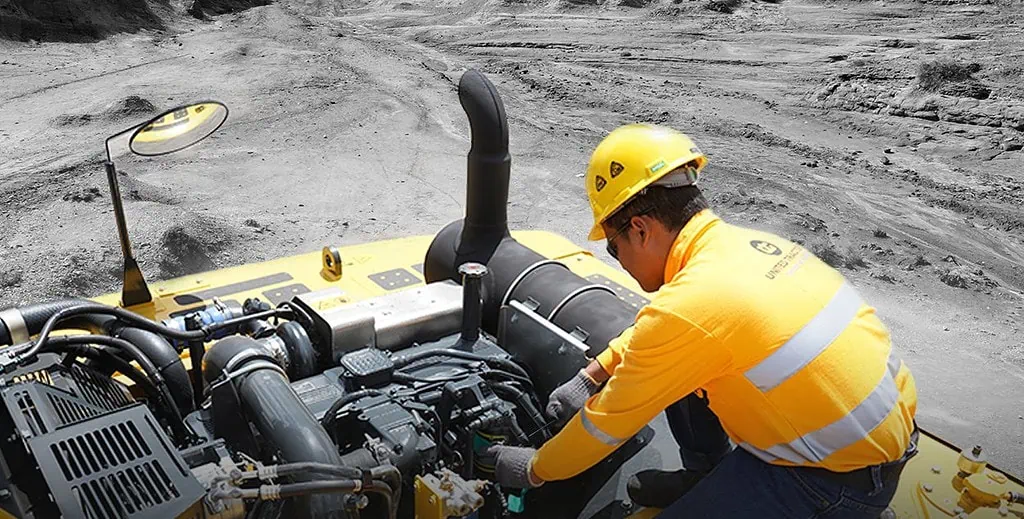
The Impact of Machine Age and Hours on Performance
Wear and Tear
As a general rule of thumb, the more hours on a used excavator, the more likely it is that the “wear” part of wear and tear comes into play. As a result, if a used excavator has a higher number of operating hours, you should expect it to have more replacement parts: an engine or hydraulic pump may be worn out. Even the undercarriage parts may be shot if the tracks are tight. Machines with a lot of hours on them almost inevitably must be broken down and rebuilt at some point. Yet many high-hour excavators are well-maintained machines that will provide many more years of problem-free operation.
Service History and Usage
Not only do you need to know how many hours are on the hour meter, but you also want to understand what those hours mean. Was the machine operated in harsh conditions or rented out to work for people who want a machine and don’t care if they destroy it? Or has this machine been used in relatively soft conditions and looked after by people who wanted to keep the machine in good shape? If possible, you want to know the machine’s usage history.
Did it actually work 250 hours per year for eight years? Or did this machine sit for two years, get stolen, recovered, and spend a year-and-half sitting in the weeds before somebody had money to fix it up and sell it to you?
Look at the Components
Besides looking at the machine as a whole, look at the components. The undercarriage, bucket, quick coupler, and hydraulic hoses/plumbing tend to wear out most easily. Those types of replacement parts cost significant money to replace. If a used excavator is priced super cheap, yet it’s going to have to have several of these big-dollar replacement parts changed out soon after you buy it, you didn’t get as good a deal as you thought you did. So you need to balance between knowing what you’re getting into and making the purchase at the right price.
How to Extend the Lifespan of a Second-Hand Excavator Worth Buying?
Regular Preventive Maintenance
Maintain the equipment! Check the engine oil, hydraulic fluid level, and top it all off; change the engine oil and filter as scheduled; ensure the air filters are clean. Keep a careful eye on the undercarriage, as it takes more abuse than any other part. Keep a close ear, nose, and feel for anything that might be amiss because what may be a small problem now could create a major wreck down the road if ignored. If you’re just starting your business and cash is tight, at least change the fluids and do monthly or every 100-hour service checks to catch what could be small issues before they turn into major expense down the road.
Proper Usage and Operating Techniques
Operate the machine as designed and use the correct procedures. Teach operators how to start and stop the machine properly. Let the machine idle a couple of minutes to warm up the hydraulic fluid and stop the machine smoothly, so you don’t shock the moving parts, throwing out the torque converters, pumps, or other expensive parts. Reduce idling the machine more than necessary. It’s wasteful of money, time, and fluids that would otherwise last longer.
Upgrade Key Systems for Efficiency
While your used excavator may be slightly older, there may be opportunities to improve key systems to get higher efficiency and output. Sometimes, these improvements can make your used machine operate more efficiently than current models. Upgrading the hydraulic or fuel systems can significantly improve the functioning of a machine, extending its life well beyond cost-effective paycheck after paycheck. A machine that will consume less fuel over time, due to an upgraded fuel system, can often pay back the upgrade cost within a year or two. A machine that runs an improved hydraulic system can often outperform a new machine on the same job and make a business owner more money!

Summary
Purchasing a used excavator can be a great financial deal, provided you look into the age and hours on the unit, ask for and verify the service record, research the brand’s reputation for both high and low lifecycle costs, do onsite physical inspections, and avoid putting your operation’s future on the line. Used machines may require more frequent repair and care times, but the money saved and the expectation for a higher overall return on investment make this buying option exceptionally attractive for many people in construction. For more information or professional advice, feel free to contact us.

